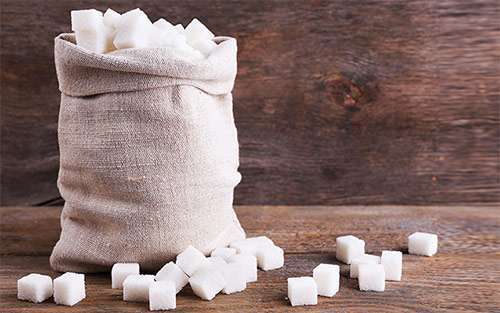
Editor’s note: Many people question if there is a link between sugar and cancer. It is difficult to understand, and it can cause a lot of anxiety. A recently published research study brought this topic to the forefront and has continued to make headlines in the media. So, we’re repurposing an existing article, “Is Sugar Really That Evil?” to address your questions on the topic of sugar and cancer.
We all get a sweet tooth from time to time. What should cancer patients do about their sugar intake, especially when trying to figure out how to adjust their diet?
Maria Petzel, senior clinical dietitian for the Pancreas Surgery Program at MD Anderson Cancer Center and a member of our Scientific and Medical Advisory Board, talks carbs and sugar, and how it affects patients.
Here is what patients should know:
“Every cell in our body uses glucose (simple form of carbohydrate) for energy, including cancer cells. Because of this, if we don’t eat any carbohydrates, our bodies will still convert fat and protein into glucose to fuel the brain and all other cells in our body. Cutting out all carbs will not cause death of cancer cells, because they cannot be starved without starving the body,” she said.
She also talked about the nuances of fructose and glucose.
“Emerging evidence suggests that pancreatic cancer cells use fructose differently than glucose – that it’s a good idea to limit sources of ADDED fructose in the diet (but continue to eat fruit). Added fructose is in foods sweetened with high fructose corn syrup or sucrose (made from one fructose molecule and one glucose molecule). High fructose foods include desserts and sweetened beverages.”
So, what’s the bottom line?
Cutting all forms of sugar out of the diet will not result in the death of cancer cells. Additionally, metabolic changes can cause the body to break down body fat and lean body mass to make energy for both cancer cells and healthy cells. This is the case regardless of sugar intake.
Limit processed foods with fructose as an ingredient but continue to eat fruit which is high in vitamins, minerals and fiber. Finally, meals and snacks should include whole grains/starches, protein, dairy, fruit, vegetables and fats. By eating foods from each food group at each meal, an individual ensures the body has a proper balance of all the nutrients it needs to function.
Pancreatic cancer patients and caregivers can access comprehensive disease information, reviewed and approved by renowned leaders in the field, including Petzel, by calling the Pancreatic Cancer Action Network’s one-on-one PanCAN Patient Services support service at 877-2-PANCAN or by completing our contact form.














